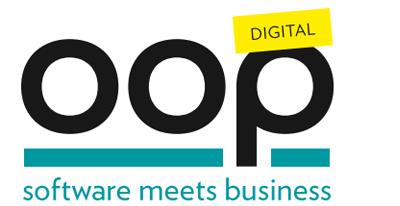
SOFTWARE MEETS BUSINESS:
Die Konferenz für Software-Architektur
08. - 12. Februar 2021, Online-Konferenz

SOFTWARE MEETS BUSINESS:
Die Konferenz für Software-Architektur
08. - 12. Februar 2021, Online-Konferenz

The growth of Kafka inside an organization sometimes follows the development of the broader Kafka ecosystem over its lifetime. The initial use case may be something conceptually simple, like mainframe offload or point-to-point integration, evoking the simple Large Pipe architectures of Kafka’s infancy. Then those newly populated streams of events present themselves as fertile grounds for real-time analytics, as stream processing applications grow up around them to perform analysis…
In speaking about better ways of thinking and problem-solving, Linda has introduced Jonathan Haidt's model for the brain. He proposes that the rational, conscious mind is like the rider of an elephant (the emotional, unconscious mind) who directs the animal to follow a path. In Fearless Change, the pattern Easier Path recommends making life easier to encourage reluctant individuals to adopt a new idea. Linda suggests that in conversations with others who see the world differently, we "talk to…
For this keynote, Intel Software and TNG Technology Consulting go on a journey to some amazing innovations in Artificial Intelligence. Starting with the concept of Intel® oneAPI and introducing software development tools enabling a multi-architecture future, the keynote will travel in real-time to the AI Labs of TNG in Munich where Thomas Endres, Martin Förtsch and Jonas Mayer will take the audience on an exciting Live Innovation Hacking Tour showcasing the latest capabilities of AI at the edge.
Over the history of software systems, the way we build such artifacts, the way we design them, the way we express them have evolved in seemingly disruptive ways. Even today, the pendulum swings between low ceremony agile methods to more rigid waterfall-ish ones; from big balls of mud to microservices and then back to big balls of microservices. In this talk, we'll examine the past, the present, and the future of software architecture: the role it plays in software systems, and the timeless…
Ein Unternehmen, das sich nach außen hin agil gibt, aber selbst nicht die Motivation und Vision dahinter verinnerlicht, praktiziert »Fake-Agile«. Und fährt die eigene Transition mit Vollgas gegen die Wand! Das gilt insbesondere, wenn es bei der ersten Herausforderung in alte Verhaltensmuster zurückfällt. Thomas Juli und Christian Schneiker gehen anhand eigener Erfahrungen und Beobachtungen auf Ursachen und Folgen von Fake-Agile ein und zeigen auf, was es bedarf, Agilität richtig zu begreifen und…
Sustainability is often defined as the interconnection of: social connection, economic wellbeing, and a healthy environment. The recent corona pandemic has yet again highlighted the potential as well as the necessity of a fundamental technology: the internet. However, to be sustainable, the internet also needs to assess, mitigate, and live up to its responsibilities for a healthy environment – an element of the equation that is too often neglected. What is the internet’s environmental impact and…